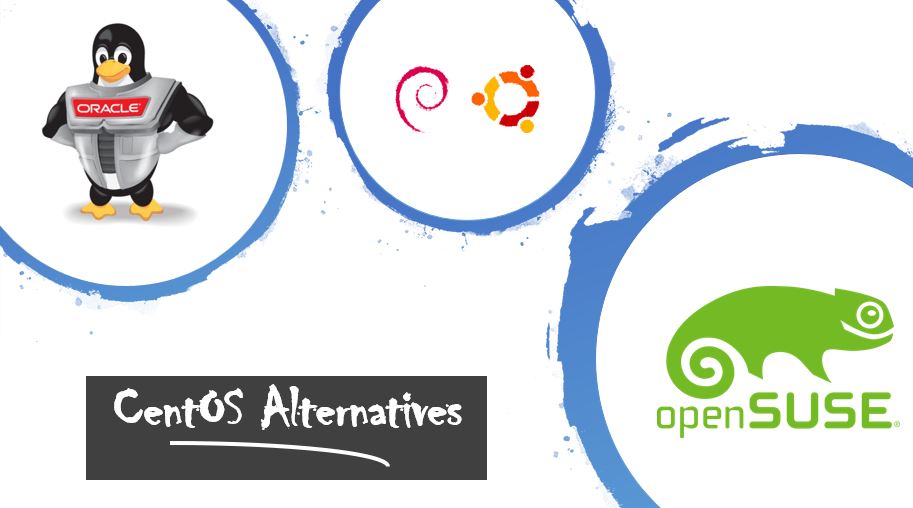Top CentOS Alternatives in 2023: Explore the Best Linux Distributions
With the recent changes to CentOS and the shift towards CentOS Stream, many users and organizations are seeking alternative Linux distributions that can provide the stability, reliability, and long-term support they have come to expect from CentOS. In this blog post, we will explore the top CentOS alternatives in 2023, highlighting their key features, community support, and suitability for various use cases. Whether you are a system administrator or an individual user, these CentOS alternatives offer compelling options for your server and desktop needs.
Rocky Linux
Rocky Linux is a community-driven, enterprise-grade CentOS replacement that aims to maintain binary compatibility with RHEL. Founded by the original creator of CentOS, Rocky Linux offers a stable, secure, and reliable operating system suitable for both server and desktop environments. With its robust community support and commitment to long-term support, Rocky Linux is a top choice for those seeking a seamless transition from CentOS.
AlmaLinux
AlmaLinux, another prominent CentOS alternative, is a community-driven, open-source project built to provide a stable and secure Linux distribution. Backed by CloudLinux, AlmaLinux offers a 1:1 binary compatible fork of RHEL, ensuring compatibility with CentOS-based applications and workloads. With its focus on long-term support and commitment to the CentOS user base, AlmaLinux serves as an excellent replacement option for CentOS users.
Oracle Linux
Oracle Linux is an enterprise-grade Linux distribution based on the source code of RHEL. It offers robust performance, scalability, and security features, making it well-suited for business-critical workloads. Oracle Linux provides long-term support, compatibility with industry-standard applications, and additional features tailored for Oracle database deployments. It is an ideal choice for organizations that require comprehensive support and integration with Oracle software solutions.
Exploring RPM and YUM: Understanding the Difference in Package Management
Ubuntu Server
Ubuntu Server, a widely adopted Linux distribution, offers a stable and reliable platform for server deployments. With its long-term support (LTS) releases, Ubuntu Server ensures extended security updates and maintenance. It boasts a vast software ecosystem, strong community support, and extensive documentation. Ubuntu Server is known for its ease of use, flexibility, and compatibility, making it a versatile CentOS alternative for a wide range of use cases.
Debian
Debian, one of the oldest Linux distributions, is renowned for its stability, security, and adherence to open-source principles. With its large and active community, Debian offers a wide range of software packages and provides long-term support for its stable releases. Debian’s robust package management system, combined with its focus on stability, makes it a reliable alternative to CentOS for both server and desktop environments.
Fedora
Fedora, sponsored by Red Hat, is a cutting-edge Linux distribution known for its focus on the latest features and technologies. While it is not a direct CentOS replacement, Fedora offers a stable and innovative platform suitable for developers, enthusiasts, and those who want to stay on the forefront of Linux advancements. Fedora provides regular updates, a vast software repository, and strong community support, making it an excellent choice for those seeking a bleeding-edge CentOS alternative.
openSUSE Leap
openSUSE Leap is a community-developed Linux distribution known for its stability, security, and ease of use. It offers a reliable and robust platform suitable for both server and desktop environments. Based on the SUSE Linux Enterprise (SLE) codebase, openSUSE Leap provides long-term support and compatibility with enterprise applications. With its YaST configuration tool, openSUSE Leap simplifies system administration and offers a range of desktop environments to cater to different user preferences.
CentOS Stream
Although CentOS Stream is the successor to the traditional CentOS, it is worth considering as an alternative. CentOS Stream is a rolling-release distribution that provides early access to upstream changes from RHEL development. It allows users to stay closely aligned with RHEL’s development cycle and contribute feedback to shape future updates. CentOS Stream is suitable for those who desire a more dynamic and active involvement in the development process and want to stay on the cutting edge of RHEL advancements.
ClearOS
ClearOS is a CentOS-based Linux distribution designed for small and medium-sized businesses. It offers a user-friendly web-based interface and a comprehensive suite of applications for network, gateway, and server management. ClearOS provides both a free community edition and a paid professional edition with additional features and support options. With its focus on simplicity and security, ClearOS is an appealing CentOS alternative for organizations seeking an easy-to-use, all-in-one solution for their IT infrastructure.
Mageia
Mageia is a community-driven Linux distribution that originated as a fork of Mandriva Linux. It aims to provide a user-friendly and stable operating system for desktop and server environments. Mageia offers a wide range of software packages, a friendly community, and a focus on internationalization and localization. With its solid stability and emphasis on ease of use, Mageia presents itself as a viable CentOS alternative for users looking for a reliable and feature-rich Linux distribution.
As CentOS transitions to CentOS Stream, exploring alternative Linux distributions becomes crucial for users and organizations seeking long-term support and stability. The top CentOS alternatives in 2023, such as Rocky Linux, AlmaLinux, Oracle Linux, Ubuntu Server, and Debian, offer compelling options for those in need of reliable operating systems. These alternatives provide features like community-driven support, binary compatibility with RHEL, enterprise-grade support, extensive software ecosystems, and adherence to open-source principles. Whether you are migrating existing CentOS deployments or starting fresh, these CentOS alternatives ensure a smooth transition while meeting your specific requirements. Stay ahead in the ever-evolving Linux landscape by embracing these top CentOS alternatives and continue to leverage the power of open-source software for your server and desktop environments.

